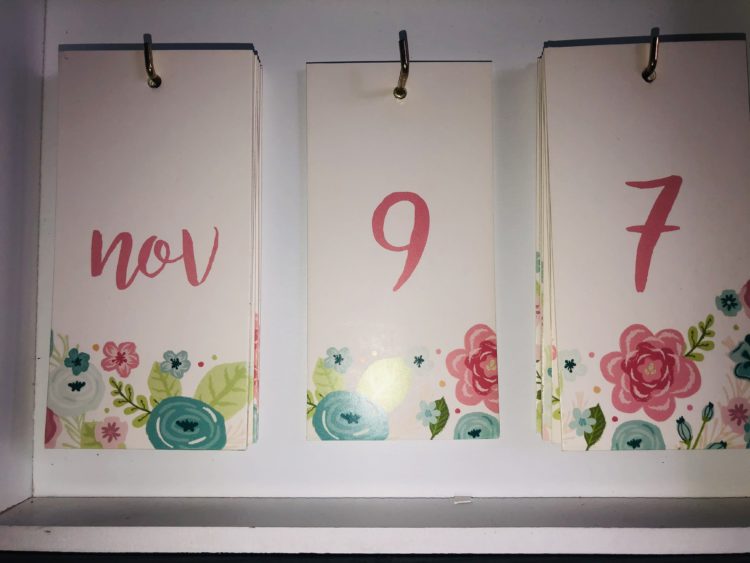3 Ways to Take Care of Your Body and Mind During the Mental Fatigue of COVID-19
My son inherited his sister’s daily calendar and is loving how he can maneuver the numbers. I walked by his desk and saw: “November 97.” Yup, it feels like November 97, 2020. What a year it has been. Each week moves along as quickly as it does slowly. Each month feels like several months in one and yet, we’ve been at this for over eight months.

The amount of universal anxiety, sadness and grief we have experienced overwhelms me as a highly sensitive person, a parent and as a professional. The children and teens with whom I work, as well as my own children, are expressing a “steady state” of nervous feelings, stress and sadness that can’t be pinpointed to one particular thing — it’s everything.
You may be feeling depressed or fatigued by the coronavirus (COVID-19) pandemic if you are experiencing any of the following:·
- Feeling restless,
- Not being able to fall asleep or maintain sleep,
- Feeling tired but wired,
- Feeling anxious without a specific cause,
- Feeling like daily tasks are difficult and laborious,
- Feeling angry about having to make decisions about safety,
- Feeling anxious about the upcoming holidays,
- Feeling sad about the changes to the upcoming holidays.
Many of us are missing our former lives that included a level of freedom and ability to participate in life activities without a second thought. How many of us watch movies and take a moment to digest that the characters are not wearing masks? How many of us carry multiple masks in our car or bag, “just in case.” How many of us miss spontaneous social interaction in our workplace, lunch dates and planning vacations and trips? I know I will never take these freedoms for granted ever again.
As a world, we are all suffering. We all feel the limits and fatigue. For many of us, mental fatigue turns into physical fatigue, which can lower your immune system and create a ricochet of symptoms such as headaches, stomach aches, achiness, inability to focus, low energy and low appetite. Although we don’t have an end date just yet, here are a few things to do to take care of your body, mind and spirit.
1. Meditate.
For me, the hardest thing to do is to sit still and try to think about nothing or to focus on a certain sensation or mantra. As much as I know that it would be helpful, I avoid it and convince myself that “I don’t have the time.” So, I’ve found guided meditations instead. As much as I still struggle to find the time because my mind starts running with all of the things I could have completed in the 15 minutes that I just spent sitting and breathing deeply, I also feel much more grounded and better able to manage the multiple demands of the day.
2. Body care.
Now, more than ever, physical self-care is not a “nice” thing to do for yourself, it’s a must. Drink water, eat nourishing foods, sleep and move your body each day in whatever format you like. Yoga, walk, jog, weight training — whatever it is that raises your heart rate, allows you to expend energy and pump endorphins through your system.
It is so easy for us to sit in front of our computer cameras all day with very little need to move other than from upstairs to downstairs or your office to the kitchen and back. I strongly dislike how sedentary our lives have become. We need to go outside, breathe fresh air and move our bodies.We are no longer walking to our cars, getting out of our cars and into the workplace. Instead, we take a few steps and plop ourselves in front of our computers for long hours. Our children too — they are not walking to the bus, walking around school and engaging in their physical education classes like they used to. Some have been able to continue to participate in extracurricular sports, but many are not.
3. Ask for help.
This is not the time to “tough it out.” If you are struggling, ask for help. Reach out to a therapist, psychologist or counselor and talk through how you are feeling with someone who is objective and neutral. Certain aspects of the pandemic may trigger feelings of sadness and anxiety, and it may be helpful for you to think about and process with the help of someone who can ask questions to help you make connections.
Lead photo via Nick Karvounis on Unsplash. Calendar photo via contributor.

